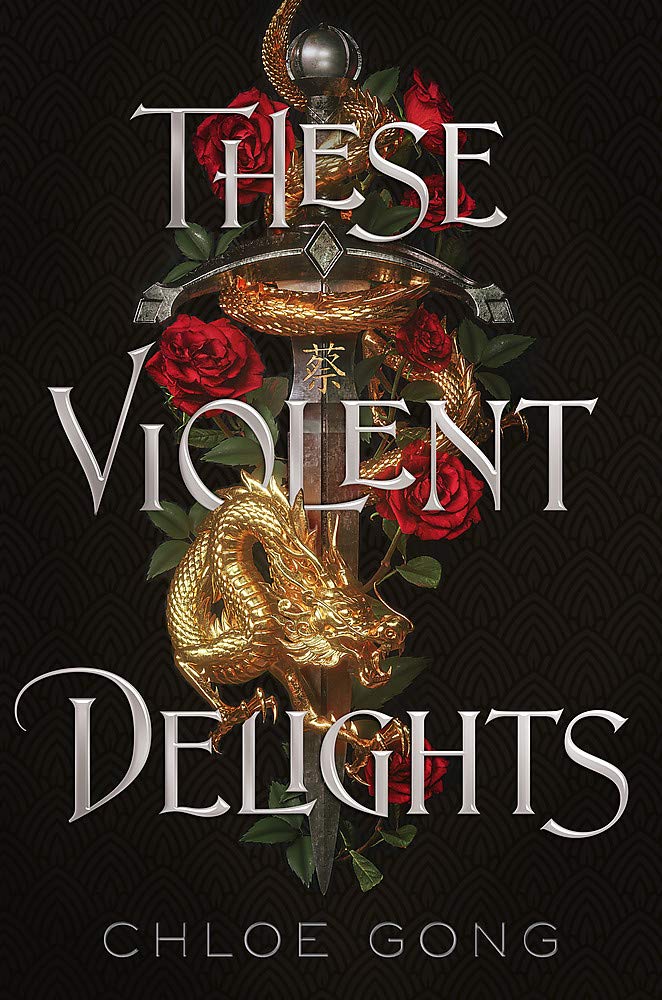Before you call me sad or pretentious for enjoying Shakespeare’s plays, hear me out: Shakespeare can be fun! Not only do Shakespeare’s works contain a plethora of clever jokes and funny lines (my favorite example being, “What you egg?!”), but many of his plays also have interesting characters and complex plots. One element of Shakespeare plays that I love is that they are so open to interpretation, which brings me to one of my favorite things on this planet: Shakespeare retellings! While I’ve dabbled in writing my own Shakespeare retellings (there is a highly classified document somewhere in my Google Drive entitled “Romeo and Juliet: the Musical”), reading them is far more enjoyable for me. However, retellings of Shakespeare plays can be very hit or miss, which is why I wanted to share my thoughts on some retellings of the Bard’s plays.
“The King of Infinite Space” by Lyndsay Faye

“Hamlet” is one of my favorite plays of all time. I mean, even my cat is named Hamlet. So, when I heard about “The King of Infinite Space,” a queer, magical retelling of “Hamlet,” I knew I needed to read it immediately. Because of my love of “Hamlet,” I had high hopes for this book, and I’m pleased to report that this story didn’t let me down. In fact, I can confidently say that this is one of the best retellings of literature that I have ever read.
The characterization of each person in the story was spot on, as the characters were depicted exactly how I pictured the modern versions of each of the original “Hamlet” characters. The story is told through the alternating perspectives of Benjamin (Hamlet), Horatio and Lia (Ophelia), allowing readers to see the events of the story through multiple perspectives. I loved this narrative choice, as it allowed readers to explore the psychology and motivations behind the actions of multiple characters.
The plot is another notable feature, which follows the original play fairly well. The changes Faye made are unexpected but made sense in the context of this retelling, while also staying mostly true to the characterizations and the plot of “Hamlet.”
As for the magical element of this story, I have mixed feelings. I found the magic system to be confusing and unnecessary at times. However, Faye did a wonderful job tying the main plot and the magic together in the end of the story, which added to the emotional impact of the climax.
The only part of this book that I really disliked was the random text changes throughout. Faye loved to play with text and changed certain lines of the story to be in different fonts, sizes than the rest of the text. However, these changes are distracting and disrupt the flow of the novel without adding much to the story. Despite this annoying element, I would highly recommend this book, whether or not you are familiar with “Hamlet.”
“These Violent Delights” by Chloe Gong

I have never cried more reading a book than I did when reading the “These Violent Delights” duology (and I’m an emotional reader). This duology is a “Romeo and Juliet” retelling set in Shanghai during the 1920s that follows Roma and Juliette, the heirs of two rival gangs. One part of this book I enjoyed is the setting, as Gong does an incredible job characterizing Shanghai during the 1920s. Not only does she use vivid imagery to describe the city, but she also incorporates the political tension of the time period in a way that was informative and easy to follow.
My favorite part of “Romeo and Juliet” is the side characters, and Gong did an excellent job staying true to the original characterizations. I also loved that she added more depth to these characters by focusing on their relationships and expanding their character traits.
I would say that the “These Violent Delights” duology is a loose retelling of “Romeo and Juliet.” Gong took the characters and the basic premise of the play and created a far more complex plot than the original storyline. I mostly loved Gong’s plot additions and thought they enhanced the original story of “Romeo and Juliet,” but one part of the story that I disliked was the incorporation of a monster that created little murder bugs. It sounds weird and grotesque, and that’s exactly how it came across in the story. If you don’t love the idea of bugs and monsters being inserted into a “Romeo and Juliet” story, you’re certainly not alone. But, I would still recommend reading “These Violent Delights,” despite the bugs, because of all the other positive elements the story has to offer. much to the story.



